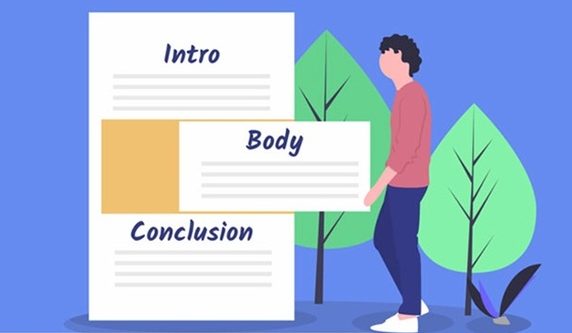
Essay writing is an important part of the school curriculum, college entrance tests, and often a part of job applications too (think cover letters)! There is a reason why so much importance is placed on essay writing for students.
While writing essays, kids have to think, research, analyze and structure thoughts and opinions on a topic in a systematic and continuous way. There is no room for ‘clip information or tidbits of facts and figures. A well-written essay is essentially a compelling piece of text that builds, holds, and defends an argument or a point of view from start to end.
In school, kids are expected to write essays multiple times a month, sometimes almost every week, for the same reasons. It encourages kids to think and then wrap their ideas into a logical structure, which means it hones their critical thinking skills. So yes, essay writing is very much a part of formal education in the United States, but let’s address the million-dollar question that comes into mind.
What does formal education really lack when it comes to essay writing?
Formal education does NOT take into account each child’s unique thinking and expression. They are fed a common template for structuring their thoughts into the standard and acceptable essay body comprising – introduction, body, and conclusion. There is little to no guidance with respect to initial research and thinking around the topic. The key problem areas are the overstress on deadlines, submission templates, and little to no room for one-on-one discussions following the submission.

To help kids write better essays and do away with all the associated anxiety built up by the formal education system, we have created a quick, actionable guide. These are the 5 simple things you can do as a student to ace essay writing like no one else! But before that, let’s quickly recap on the most common types of essays a student can be asked to write.
Also Read: 5 Key Reading Skills to Teach Kids for Overall Reading Success
The 4 Types of Essays Kids should write
1. Argumentative essays
An argumentative essay expresses an argument for a particular thesis statement shared with the author. The author then takes a clearly defined stance on their subject and builds up an evidence-based case for it.
2. Expository essays
According to Purdue Online Writing Lab, “the expository essay is a genre of essay that requires the student to investigate an idea, evaluate evidence, expound on the idea, and set forth an argument concerning that idea in a clear and concise manner. You can accomplish this through comparison and contrast, definition, example, the analysis of cause and effect, etc.”
3. Narrative essays
A narrative essay is like a simple 5-paragraph essay where everything right from the facts to incidents to characters revolve around a single motif. It often tests your ability to tell a story in an interesting way without losing the essence of it by digressing too far from the singular motif.
4. Descriptive essays
As the name suggests, a descriptive essay is all about describing a place, person, object, situation, emotion, or experience. This is usually a way to test one’s ability to describe an experience in form of a structured, written account.
Also Read: How to Use Figurative Language to Enhance Your Writing
5 Tips to Ace Essay Writing like a Pro
1. Spend at least 10% of your time doing the background work
A common mistake is to dive straight into writing the essay without spending enough time doing the ‘rough work’ or the ‘background work’. By this background work, we mean everything right from jotting down your first thoughts to creating bullet points for each of the sub-paragraphs (intro, body, and conclusion) and to noting key facts useful as evidence. You should ideally spend at least 10-15% of your time in putting your thoughts together and researching the topic whenever possible. This will help in many ways, for example:
- You will avoid missing out on any good ideas that came to you first but got lost in the exercise of writing
- There will be a clear outline to fill color in without spilling over
- You won’t be intimidated once you will have a picture of the essay right in front of you before you even begin fleshing out
2. Organize your essay and make a rough outline
This is essentially a deep dive into what we discussed in the very first point. Having a clear outline, headings, sub-headings, and mini-cues for the body of the essay can do wonders to your essay quality and time spent in writing it.

Here are some tips to create a great essay outline that’s fail-proof:
- Create the major outline first and leave spaces below each heading – Intro, Body Para-1, Body Para-2, Body Para-3, and Conclusion
- Now for each of the body-paragraph headings, create only 5 bullet points each detailing the following:
- First body paragraph: Unpack the topic sentence, prove your topic sentence’s claim by supplying arguments, facts, data, and quotations
- Second body paragraph: Analyze the evidence
- Third body paragraph: Prove your objective or opinion using evidence and provide a smooth transition into the conclusion. Do it in a way it seems most organic and logical next advancement into the essay
- Remember that Each body paragraph must relate logically to the one immediately before and after it
Once you have a thorough outline ready, filling in details will become 10X easier, try it to believe it is all we’d say!
Also Read: Improve the Writer in Your Child, Not the Writing!
3. Cite resources and pieces of evidence
Citing references makes your essay much more credible and compelling. The choice of references is also something you should be mindful of. For example, it is much harder to refute a piece of evidence cited from a Government website than crowd-sourced information. We also advise moderating the number of references cited. Too many references are going to be as detrimental to your essay’s appeal as not citing any references at all. Your essay shouldn’t come across as a mash-up of facts picked out of the internet but should have a healthy balance of your opinion, analysis, original thought, and data picked from trusted sources.
4. Proofread thoroughly
Proofreading your essay is a must. Grammatical errors, spelling mistakes, etc. can all take away from your essay’s core thought and appeal in no time. Keeping aside some time to proofread your own writing goes a long way in writing neat and compelling essays. So what should you do? Well, always apportion at least 10-15 minutes for final proofreading and editing before submitting any essay.
5. Get feedback from diverse sources
Lastly, getting feedback from diverse sources can be a great way to build your essay writing skills. Try to get feedback from online discussion forums, your teachers, parents, and even friends. You never know who’s going to give you the best of offbeat, actionable advice!

Try the above tips and watch your essays go from good to best in no time. We promise that with dedication and effort, your essays will start to stand out. It may even soon become your favorite exercise at school!
The Final Word
Got more doubts or want to take your essay writing skills to yet another orbit? Hire a private tutor who specializes in essay writing. Don’t forget to check out our Guide to Finding the Best Writing Tutor.
At Talentnook, students benefit hugely from private tutors and from our dedicated Talentnook Writing Program. Our writing programs are tailored as per age group and knowledge level. If you’re interested in improving your writing skills, Talentnook Writing Academy is the universe you need to explore today!